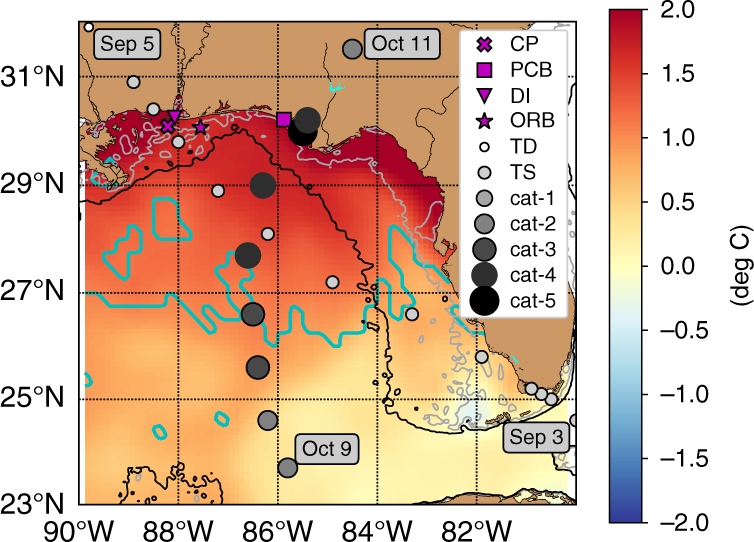Dauphin Island Sea Lab's Brian Dzwonkowski and Others Author Article in Nature on Compounding Impacts of Severe Weather
December 1, 2020
"Compounding impact of severe weather events fuels marine heatwave in the coastal ocean"
Dzwonkowski, B., Coogan, J., Fournier, S.
et al. Compounding impact of severe weather events fuels marine heatwave in the coastal ocean.
Nat Commun 11, 4623 (2020). https://doi.org/10.1038/s41467-020-18339-2
View the article here: https://www.nature.com/articles/s41467-020-18339-2
Abstract

Exposure to extreme events is a major concern in coastal regions where growing human populations and stressed natural ecosystems are at significant risk to such phenomena. However, the complex sequence of processes that transform an event from notable to extreme can be challenging to identify and hence, limit forecast abilities. Here, we show an extreme heat content event (i.e., a marine heatwave) in coastal waters of the northern Gulf of Mexico resulted from compounding effects of a tropical storm followed by an atmospheric heatwave. This newly identified process of generating extreme ocean temperatures occurred prior to landfall of Hurricane Michael during October of 2018 and, as critical contributor to storm intensity, likely contributed to the subsequent extreme hurricane. This pattern of compounding processes will also exacerbate other environmental problems in temperature-sensitive ecosystems (e.g., coral bleaching, hypoxia) and is expected to have expanding impacts under global warming predictions.
This article has generated a large amount of interest within the scientific community including mentions in news media (The New York Times and the Guardian) and National Geographic, as well as the United Nations Office for Disaster Risk Reduction.
